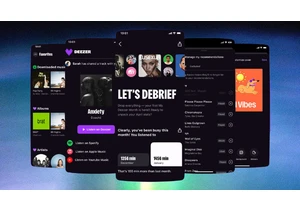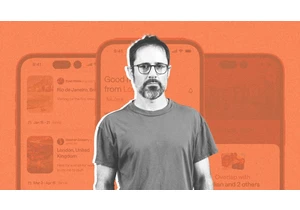You just tested positive for COVID-19. Do you really have to spend 10 days in isolation? Experts are calling for new isolation guidance that takes into account whether a sick person is unvaccinated, vaccinated, or boosted. COVID-19 is spreading across the country fast. Cases are up 20% over the past 14 days, according to the New York Times data. That is mainly due to the spread of two highly infectious variants, omicron and delta. Anthony Fauci, head of The National Institute of Allergy and Infectious Diseases, and Rochelle Walensky, head of the Centers for Disease Control and Prevention (CDC) expect omicron to become the dominant strain. Currently, the CDC recommends that anyone infected with COVID-19 isolate for 10 days from the first symptom. If you test positive for COVID-19 and never develop symptoms, the CDC says your first day of isolation is the day you receive your positive test. If you later start having symptoms, then you have to restart the clock with your first day of isolation beginning on the day you experience symptoms. But these rules were designed for people who are unvaccinated. Now, some epidemiologists are calling for the CDC and other health organizations to calculate a new minimum isolation period for those who have been vaccinated and those who have been boosted.
Omicron raises an urgent math problem for epi world & @CDCgov– Solve for X:For vaxxed person w/ Omicron, "X"=minimum # of days of isolation that optimizes limiting spread & keeping economy going, assuming rapid test is neg on days X-1 & X.(Hint: I doubt it's 7-10; my guess ~5) — Bob Wachter (@Bob_Wachter) December 19, 2021
Ten days is a long time for someone to isolate, particularly if they don’t get paid sick leave. Bob Wachter, chair of the Department of Medicine at the University of California, San Francisco, tweeted that the amount of time a vaccinated person with COVID-19 needs to isolate is likely less than 10 days. He estimates it may be closer to 5 days—though he acknowledges it’s a difficult equation to solve. “It’s not only a complex math problem, it’s also a social values problem, since extending X to achieve zero chance of spread may be too ‘costly’—especially in healthcare settings, where we might run out of docs & nurses. But how low is ‘low enough’?” he wrote. Dara Kass, a regional director of the Department of Health and Human Services (HHS), tweeted that she tells vaccinated friends with breakthrough infection that when two successive rapid tests are negative, they can “presume you aren’t contagious and can leave isolation.” Ashish K. Jha, dean at Brown University and former director of Harvard’s Global Health Institute, tweeted that he tells friends, who have received three doses of either the Pfizer or Moderna vaccines to isolate from the point of symptoms or a positive test and take a rapid antigen test on day five. If they test negative and have no symptoms, it’s likely safe for them to come out of isolation. All three public health experts—Dr. Kass, Dr. Wachter, and Dr. Jha—agreed more data is needed to better determine what actions vaccinated and boosted people should take, if they become infected. That said, the safest window of isolation is still 10 days. “Want 100% assurance? Sure, do 10 days,” wrote Jha. While asking any American with COVID-19 to isolate for 10 days regardless of vaccination status may be the safest option, it may not be the most achievable. Some people may need to go back to work for economic reasons, and giving Americans guidance they can reasonably stick to is also important. As COVID-19 cases rise and hospitals take on more sick patients, vaccinated hospital workers are likely to get breakthrough infections. Healthcare systems may not be able to afford to have nurses and doctors with breakthrough infections off for a full 10 days, especially if their symptoms have subsided, and they are testing negative. Although the CDC has not updated its isolation guidance, the center does acknowledge that while vaccinated people with breakthrough infections can still transmit COVID-19, the amount of virus produced in this population decreases faster than in unvaccinated people. “This means fully vaccinated people are likely infectious for less time than unvaccinated people,” it notes. But there are still questions. A lot is unknown about the highly transmissible omicron variant. Vaccinated individuals who are older or immunocompromised with breakthrough infections may need to stay isolated for at least 10 days. The CDC says that people who are either severely sick or immunocompromised are unlikely to remain infectious longer than 20 days after symptoms appear, and yet there are reports of some immunocompromised people continuing to transmit the virus beyond that period. Public health experts are recommending that everyone stock up on at-home antigen tests. President Biden has also promised to make at-home tests free for millions of Americans through insurer reimbursement and by sending tests to rural and federally qualified health centers, which the administration hopes will make these tests more easily obtainable. Many public health experts think that allowing people to regularly test for COVID-19 is the best strategy we have for bringing down case numbers. The White House and public health experts are also pleading with Americans to get vaccinated (and boosted). Only 61% of Americans over the age of 5 are fully vaccinated; and less than a third of vaccinated people have received a booster shot. Meanwhile, COVID-19 is going to continue to spread. “We know omicron moves very quickly,” Dr. Fauci said on CNBC’s Squawk Box Friday. “This variant is going to move much more quickly through the country than delta did, so people who are waiting to get a booster to afford themselves a measure of protection against this variant—time is running out to do that.”
Chcete-li přidat komentář, přihlaste se
Ostatní příspěvky v této skupině

Instagram has begun testing AI-powered technology designed to proactively identify accounts it suspects belong to teens—even if the user has listed an adult birthdate—and place them under special

Behind the curtain of generative AI breakthroughs and GPU hype, a quieter transformation is taking place. Data center architecture and its prowess have become a fierce battleground as AI models ex

Amid the video podcast boom, Netflix is making its own move into the space.

If real Easter eggs aren’t your thing this weekend, you may find hunting for digital ones more enjoyable. And there are some cool ones to find at your fingertips, provided you have an iPhone or Ma

With music streaming, users have gotten used to being at the mercy of algorithms. But French music streamer Deezer is making it easier for its subscribers to make the algorithm work for them.

Trying to get from point A to point B? If only it were that simple! With any manner of travel these days, you’ve got options: planes, trains, buses, ferries, and beyond. And finding the best

When Twitter cofounder and Medium founder Evan “Ev” Williams was planning his 50th birthday party, he didn’t know who to invite. Having spent more of his life building and scaling tech
